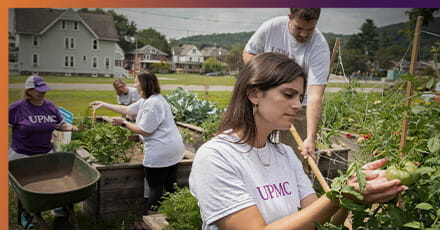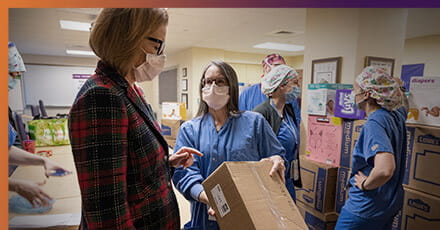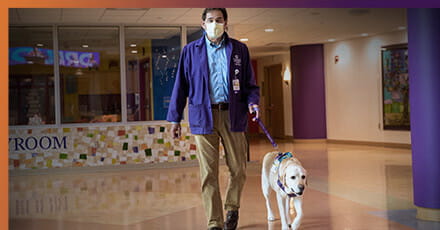Health Access Initiative for Recovery (HAIR)
“Barbershops and salons are sacred spaces. They've been that way for a long time.”
At UPMC, we are committed to developing programs to strengthen and support our communities.
In May 2023, UPMC Health Plan launched the community-based Health Access Initiative for Recovery (HAIR). The program's debut coincided with Mental Health Awareness Month.
The program also aims to improve health in minority communities by increasing meaningful outreach, supporting education and engagement, and reducing health disparities.
Learn more about the HAIR initiative and hear from members of the program below.
HAIR teaches barbers and stylists in Black communities how to talk to customers about mental health. Participants learn how to discuss topics like substance abuse, anxiety, depression, and suicide prevention.
HAIR program manager Lori Weems says Black communities experience mental illness at the same rate as the general population. However, they do not seek help at the same rate.
Lori attributes the lack of engagement to distrust, bias, and a stigma about mental health among Black community members.
“But, who they do trust are their barbers and their stylists,” she says. “We wanted to partner with them and arm them with tools and information so that they could further support their clientele.”
One of those barbers is Curtis Miller, owner of Heirs Barbershop in Pittsburgh’s East Liberty neighborhood. Curtis is a consultant who trains other barbers and stylists in the program.
With 25 years of experience as a social worker and a decade practicing therapy, Curtis brings a unique skill set to HAIR.
“When I'm behind the chair, (I) can offer something a little bit different with that knowledge and that experience,” he says.
“That's part of what we bring to the project as barbers, stylists, (and) therapists as well. How to deal with that. How to feel things. How to pick up on what people may be experiencing.”
For that reason, Curtis believes barbershops and salons represent sacred spaces in their communities.
“They’ve been that way for a long time,” he says. “It’s one of the most comfortable places you can come into. People really let their hair down. They talk, they share everything with you.
"I think the people who work behind the chairs are truly gifted. That's why we have to take care of them as well.”
The first barbers and stylists to participate in HAIR took part in a two-day training, including role-playing and practice sessions. The participants represented communities throughout Allegheny County and the city of Pittsburgh.
The first day focused on mental health, with discussions about depression, anxiety, and trauma. Participants also received training in a suicide prevention curriculum known as Question, Persuade, Refer (QPR).
“And then (on) day two, we focus on substance use disorder,” Lori says. “We train them on alcohol use disorder, opioid use disorder, and then medication-assisted treatment.”
HAIR also partners with the Allegheny County Health Department. Once the two-day training is completed, HAIR organizers stay in contact with each group of barbers and stylists for six months.
But the camaraderie among each participant remains long after.
“It's almost like a support group,” Lori says. “Some of them already knew each other, but some of them didn't. And just them getting together and being able to share stories together has been so powerful for them as well.”
At UPMC, Life Changing Medicine means creating safe spaces in our communities to support mental health.
Pittsburgh (KDKA): Group of Pittsburgh barbers want clients to look and feel good.
Read stories from members of the HAIR program
























